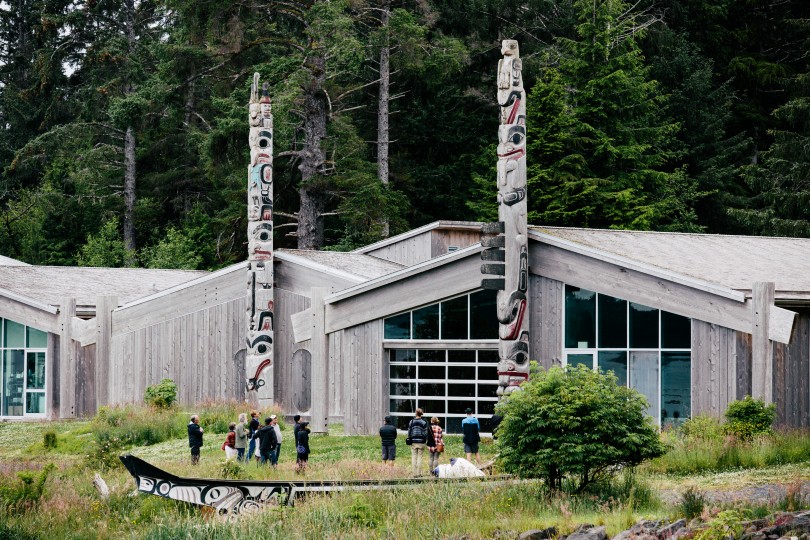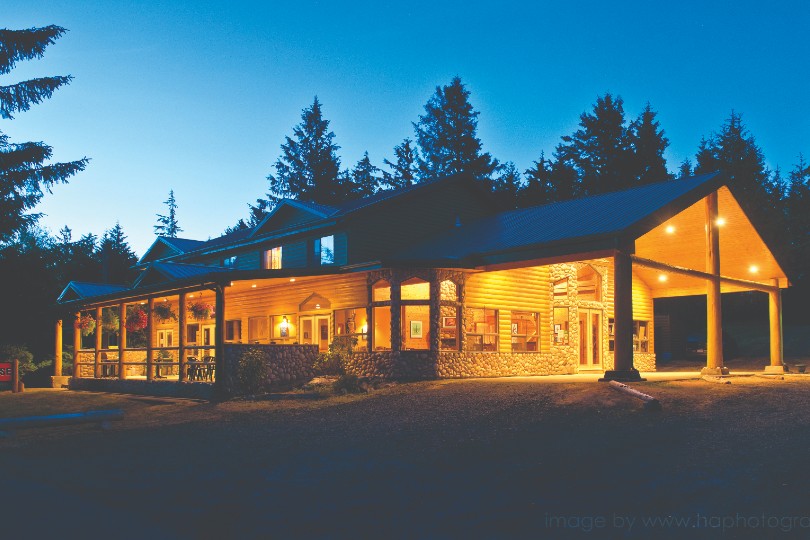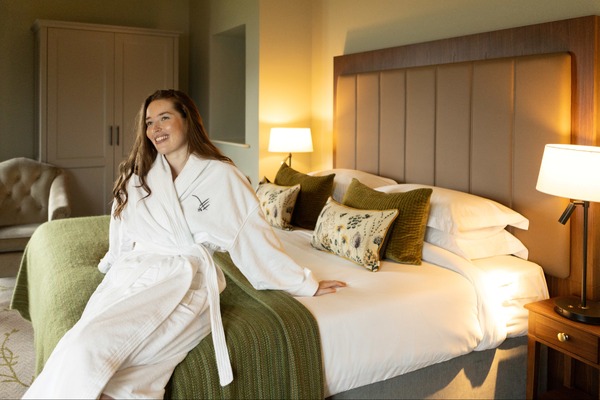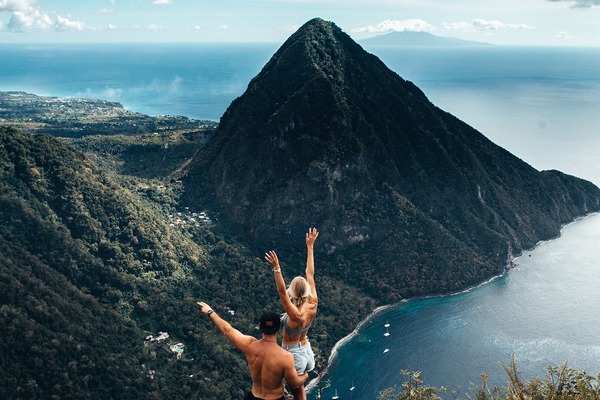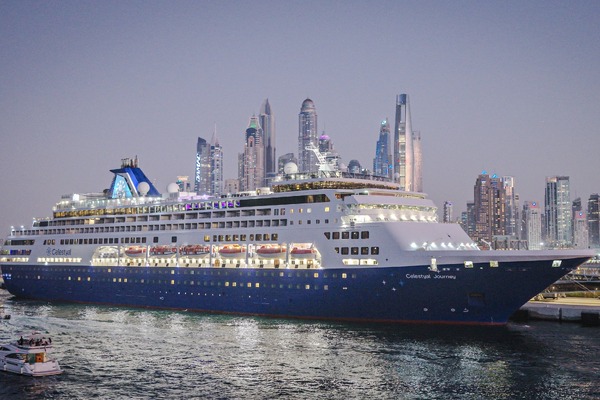How to visit Haida Gwaii, seen on Race Across The World
Once driven to the edge of extinction, the indigenous Haida people of British Columbia are now thriving and want to share their story with visitors to the mystical Haida Gwaii islands. Their profile is sure to be raised following the first episode of Race Across the World, which aired on BBC One and iPlayer on Wednesday 22 March and saw contestants having to make their way from the starting point of Vancouver to Tlell in the north of Haida Gwaii.

Now,” says Phred. Squinting in the starlight, my fingers uncurl the small piece of paper I was handed 30 minutes earlier. It reads “All phenomena is impermanent”.
The sky is clear as we watch the stars dance at the edge of the world. And all is still, except the gently lapping waves advancing up the beach and a light breeze in the air. Having silently walked through the forest from our cabins, we’re stood staring out to sea. We’re meditating.
“This is a pretty intense place to be,” he adds. “We’re at the edge of the Continental Shelf, where there’s an underwater cliff that goes down to the abyssal plain of the ocean, where the Pacific Plate is still subducting, going underneath.”
With the horizon invisible, and Venus casting a line of light on the water, there’s a white shape, edging closer. I can’t tell if it’s sea fog or star glow reflecting on the water, until with a splash of a wave, everything glitters. Bioluminescent plankton lights up each splash, like the stars are trapped in the water.
Here in Haida Gwaii – an archipelago of 150 rocky, densely forested islands off British Columbia’s West Coast and a two-hour flight north of Vancouver – we’re in the ancestral territory of the Haida Nation. It’s easy to see why so much of Haida culture speaks of supernatural beings.
“Our people have been here for thousands of years,” says Marni York, a cultural interpreter and our Haida guide for Haida House, where I’m staying. “Before contact, it’s estimated there were around 10-20,000 of us. That fell to around 600. Now, there’s around 5,000.”
CONTINUING CULTURE
The lodge is part of Haida Tourism, a 100% indigenous-owned company that also owns boutique hotel Ocean House, closer to Masset. It forms part of the Haida Nation’s pioneering work to cultivate businesses that not only achieve financial independence and improve the life of the Haida people, but crucially preserve Haida culture and protect this wild, unique place too.
In fact, visitors to the islands are asked to adhere to the Haida Pledge. Effectively a guide to responsible tourism, guests are asked to follow guidelines including asking permission before taking pictures of people and places, and respect all beings.
Haida House, located in the wilderness along a long sandy beach, was a bear hunting lodge until the Nation bought it and all recreational licences, effectively ending the “sport”.
Three-, four- and seven-night packages include all meals and transportation, and a Haida cultural interpreter to lead guests on authentic experiences such as dining with Haida families and forest walks with non-Haida hosts like bird expert Phred Collins.
“We go into people’s homes, and into the [totem pole] carving sheds,” adds Marnie. “We don’t have large groups. We want to share Haida culture with outsiders, and educate people on what’s important to us.”
At the Haida Heritage Centre, pieces of the Nation’s history – its precious art, including ancient totem poles – are making their way back from being taken when the islands were “discovered” by the wider world. One sign reads: “We come from supernatural beings that came out of the ocean. Our world began thousands and thousands of years ago.”
With a drum and song, we’re welcomed into the house of Roberta Olson, who says a prayer in Haida (there’s few fluent speakers left), holding a bird’s wing. Everything, from dried seaweed, dried salmon and herring eggs on kelp, was grown or caught here.
“In the carving sheds, the air is sweet with cedar as craftsmen carve poles that will soon be raised across the island to honour late loved ones, and new civic buildings. It’s a sign of how far Haida’s have been able to reclaim its culture after so many attempts to wipe it out. “We’re having a major art renaissance right now,” says Marnie, “with lots of poles going up.”
SPLENDID ISOLATION
James Cowpar, co-owner of Haida Style Expeditions, leads us across the water to one of the most remote parts of these islands. The indigenous-owned company leads cultural adventure and fishing expeditions.
A gentle mist sits low on the water as we pass through the narrows, a channel of water separating Graham Island, the largest, from the speckle of those below. “Few people get to come out here,” says James. “It’s so remote, and when the swell is up, we don’t come.”
Mooring in clear waters, we step into the dense forest of towering spruce and cedar as sunlight trickles through the canopy, darting light like a mirrorball. It illuminates glowing opalescent abalone shells, offerings from the visitors that have made it this far.
Then we stop, and look up. Here in what was once the village of Ts’aa.ahl (pronounced “Joth”), stands a pole. Dating from the 1700s, it’s a rare survivor. “We think they didn’t take it because it would have been too hard to get.” Just along the shoreline stands another. Both, though weathered, still clearly show their carvings. The Haida belief is in impermanence, that these too one day will return to mother earth.
“Here, we have history,” adds James, looking up at the hand-hewn faces of whales, bears, and eagles. “You guys have been witness to two of the last standing frontals. It’s always so impressive to look up and see it still standing after all these years. How much longer? We’re not sure.”
Book it: North America Travel Service offers a 14-day “Discover Haida Gwaii and Northern BC” itinerary from £6,999 per person, based on two adults sharing, travelling in May 2023. The package includes Heathrow-Vancouver flights, transfers, three nights at Haida House, plus one-week SUV rental (pick-up in Prince Rupert) with onward stops to Vancouver via Whistler. northamericatravelservice.co.uk
Premier Holidays offers a nine-night package, including Heathrow-Vancouver flights departing 23 May from £5,099pp based on two sharing. Includes four nights at Haida House including transfers, meals and activities. premierholidays.co.uk
For more information see hellobc.com; haidagwaiipledge.ca
